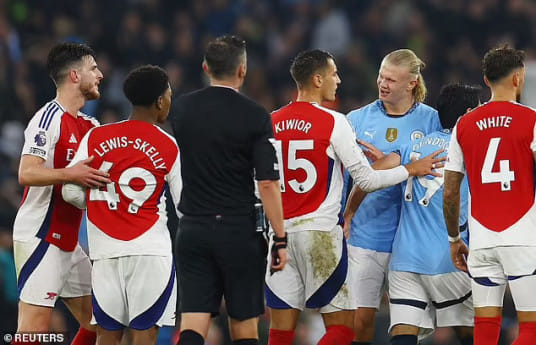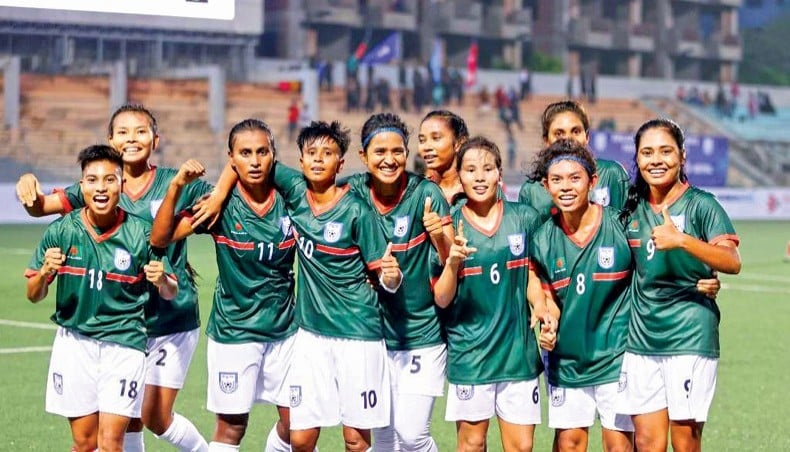How over-regulation is killing the EPL

The words "unpredictable" and "rivalry" come up when fans describe the English Premier League (EPL). These are two essential components that make the EPL the biggest and most watched football league in the world. When you combine these two with football, you get emotions—raw, uncharted, unregulated, and limitless outpourings of emotion. Some positive, some negative, but that is what the beautiful game exudes. When you take that away, what you are left with is a product that does not move you or you no longer resonate with. The emotions of sports are what make it unique.
Think about some of the most iconic moments in sports—Andrés Iniesta's tribute to Dani Jarque after scoring the winning goal in the FIFA World Cup 2010, Lionel Messi cupping his ears to the Dutch bench in 2022, Cristiano's tears of joy in Euro 2016 or tears of agony in 2008, LeBron's collapse after delivering Cleveland's first title in 52 years, Djokovic ripping his shirt off in celebration after battling Nadal for six hours, or Nadal and Federer's hands intertwined as the latter bid farewell to his sport. What common elements do all these great moments have? Emotions—both good and bad, the unseen burden borne by these athletes, something none of us can truly imagine without walking in their shoes. This is what constructs sports—the passion, the sentiment, and the loose, animalistic side that athletes must possess to become champions. But somehow, in 2025, we have reached a point where we simply cannot allow players to exist in a space of emotion. We expect our athletes to be robots, to bottle up all their feelings and carry on without any reaction.
Since 2023, the Premier League has been policing emotions, using "dissent" as the catchword. Kick a ball in frustration, you will immediately be punished. React loudly, and there's a yellow card. If you scream a profanity, you will see the darker shade coming out of the back pocket of the referee. It is understandable to remind players that surrounding a referee after a foul and demanding a card to be shown or withdrawn can sometimes cross the line from emotion to intimidation. But somehow, we have arrived at a point where rationality and subjective evaluation of a reaction have left the building. Any player, no matter how minimal their reaction, will be punished. Managers on the touchline are continuously penalised for reacting. If they leave their box, they risk being told to leave the field altogether. There is just too much policing going on. Whether it's match officials or Gary Neville giving his two cents on how Gabriel Magalhães celebrating in Haaland's face is disrespectful, or Iliman Ndiaye being booked for his seagull celebration, we are now well past rational regulation. Overt regulations kill the joy, and in turn they take away the excitement of sports.
Earlier last week, the Premier League announced that they would now be monitoring player celebrations to see whether they are damaging the reputation of the game or inflaming opposition fans or players. Tony Scholes—the Premier League's chief, believes that once celebrations cross the line and turn to mockery or criticism, they should be punished. But who judges that? The referees who are already under condemnation for blatant bias? Or the Premier League itself, which many claim punishes some more than others? In an ideal world, situations would be dealt with subjectively, but subjectivity in football simply opens the door for favouritism, and this has been laid out in front of us over the past three years.
However, perhaps the real question we should be asking is, what triggered this whole conversation in the first place?
From the sound of it, you would think that this discussion began because a player made an offensive or derogatory celebration mocking a special characteristic of a person or team. But, no. It was Myles Lewis-Skelly, the 18-year-old Arsenal player, copying Erling Haaland's meditation celebration after scoring his first goal for the senior team.
For years, players in the Premier League have brought out celebrations mocking their opposition. In recent years, Jamie Vardy's bird celebration against Crystal Palace was compiled into the Premier League's own "best celebration" video, Neal Maupay mimicked James Maddison's darts celebration, Andros Townsend did the "siu" against Manchester United, Suarez dived in front of David Moyes. There is an abundance of examples. Yet, what seems to be the last straw is an 18-year-old player copying the celebration of Haaland—who just a few months back asked Myles, "who the f—are you?" when the latter stepped in to stop a commotion between Haaland and Gabriel.
The critics, such as Jamie Carragher and Graham Souness, argue that it's too early for Myles to start mimicking more experienced players. Because, yes, Neal Maupay is definitely more experienced than James Maddison, and Andros Townsend is miles ahead of Cristiano Ronaldo, right? This is an absurd comment and in many ways highlights the stark differences of how young black players are treated compared to white players, even if they are English. Phil Foden actually does a "gun" celebration that many find offensive and that sends the wrong message. Yet, he has never been subjected to any criticism, let alone criticism of this magnitude. Is it the club Myles plays for? Is it his confidence that they don't want to see in a youngster? Whatever it is, you really have to question the underlying theme of racism that black players are subjected to more often than their white counterparts. The constant and harsher criticism has taken out too many stars; do not let Myles be another victim.
Bring back the 2000s; fans do not want to see robots. They want to see a human being giving their all and then reacting to their shortcomings or their unexpected triumphs. They want managers to show passion on the touchline—Wenger and Mourinho did not sell papers or draw eyes to their duels by sitting peacefully on the bench and shaking their hands at the end of the match. No, it's the tie tugging, the heated words, the press conference jabs, that made fans pile in through the gates or pay 25 quid a month to watch these two go at each other. Rivalries thrive on emotions, which showcase the individuality of each player. Personalities are what make them unique and draw fans into the game. Don't stop them now—the Premier League needs these moments to continue being the greatest league in the world.
Raiyan Binte Rafiq is a sports columnist for The Daily Star. She works in Sports Media in the UK and manages recruitment at Next Level Sports Management in Bangladesh.
Views expressed in this article are the author's own.
Follow The Daily Star Opinion on Facebook for the latest opinions, commentaries, and analyses by experts and professionals. To contribute your article or letter to The Daily Star Opinion, see our guidelines for submission.




 For all latest news, follow The Daily Star's Google News channel.
For all latest news, follow The Daily Star's Google News channel. 

Comments